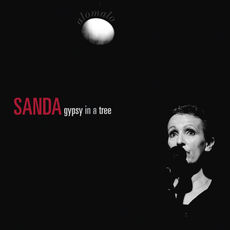
Unlimited Streaming
Listen to this album in high quality now on our apps
Start my trial period and start listening to this albumEnjoy this album on Qobuz apps with your subscription
SubscribeEnjoy this album on Qobuz apps with your subscription
Digital Download
Purchase and download this album in a wide variety of formats depending on your needs.
Sanda Weigl was born in Bucharest, Romania and spent her childhood steeped in the traditional songs and melodies of the Roma (or Gypsy) people. But as an adolescent she found herself in political exile in East Germany, absorbing the musical culture of Berlin's theater district, where she came to love the music of Brecht and Weill. Another displacement came when she was expelled as an enemy of the East German state and settled on the other side of the city for a time before finally relocating to New York, where she gravitated to the downtown scene and helped introduce such local celebrities as guitarist Marc Ribot and reedman Doug Wieselman to the rich heritage of Roma music. On Gypsy in a Tree you can clearly hear all of the influences of her past: there is a definite Brecht/Weill tinge to "Intr-o Zi la Poarta Mea" and a strong undertow of tango rhythms on both "Saraiman" and "Nu Exista-n Lumea Asta," while the album-closing "Alomalo" sounds like a polka as written by Ennio Morricone for a surrealist Western, and "Jandarmul" combines a dreamily (if ultimately drearily) arrhythmic jazz progression with a desultory tabla beat. Throughout the album, Weigl sings in a voice and in a style that both evoke Edith Piaf in a Gypsy bar, and there's a general mood of longing and regret; but occasionally the light shines through, as on the sprightly and fun "Ani Mei Si Tineretea," and moments like that one give this album an unusual richness of emotional texture. Gypsy in a Tree may not grab you immediately, but it's worth multiple listens.
© Rick Anderson /TiVo
You are currently listening to samples.
Listen to over 100 million songs with an unlimited streaming plan.
From 12.49€/month

Traditional, Composer - Sanda Weigl, Artist, MainArtist
2011 Barbès Records 2011 Barbès Records
Traditional, Composer - Keren Ann, Artist - Sanda Weigl, Artist - Sanda Weigl feat. Keren Ann, MainArtist
2011 Barbès Records 2011 Barbès Records
Traditional, Composer - Sanda Weigl, Artist, MainArtist
2011 Barbès Records 2011 Barbès Records
Traditional, Composer - Sanda Weigl, Artist, MainArtist
2011 Barbès Records 2011 Barbès Records
Traditional, Composer - Sanda Weigl, Artist, MainArtist
2011 Barbès Records 2011 Barbès Records
Traditional, Composer - Sanda Weigl, Artist, MainArtist
2011 Barbès Records 2011 Barbès Records
Traditional, Composer - Sanda Weigl, Artist, MainArtist
2011 Barbès Records 2011 Barbès Records
Traditional, Composer - Sanda Weigl, Artist, MainArtist
2011 Barbès Records 2011 Barbès Records
Traditional, Composer - Sanda Weigl, Artist, MainArtist
2011 Barbès Records 2011 Barbès Records
Sanda Weigl, Artist, MainArtist - Takeishi/Weigl, Composer
2011 Barbès Records 2011 Barbès Records
Traditional, Composer - Sanda Weigl, Artist, MainArtist
2011 Barbès Records 2011 Barbès Records
Album review
Sanda Weigl was born in Bucharest, Romania and spent her childhood steeped in the traditional songs and melodies of the Roma (or Gypsy) people. But as an adolescent she found herself in political exile in East Germany, absorbing the musical culture of Berlin's theater district, where she came to love the music of Brecht and Weill. Another displacement came when she was expelled as an enemy of the East German state and settled on the other side of the city for a time before finally relocating to New York, where she gravitated to the downtown scene and helped introduce such local celebrities as guitarist Marc Ribot and reedman Doug Wieselman to the rich heritage of Roma music. On Gypsy in a Tree you can clearly hear all of the influences of her past: there is a definite Brecht/Weill tinge to "Intr-o Zi la Poarta Mea" and a strong undertow of tango rhythms on both "Saraiman" and "Nu Exista-n Lumea Asta," while the album-closing "Alomalo" sounds like a polka as written by Ennio Morricone for a surrealist Western, and "Jandarmul" combines a dreamily (if ultimately drearily) arrhythmic jazz progression with a desultory tabla beat. Throughout the album, Weigl sings in a voice and in a style that both evoke Edith Piaf in a Gypsy bar, and there's a general mood of longing and regret; but occasionally the light shines through, as on the sprightly and fun "Ani Mei Si Tineretea," and moments like that one give this album an unusual richness of emotional texture. Gypsy in a Tree may not grab you immediately, but it's worth multiple listens.
© Rick Anderson /TiVo
About the album
- 1 disc(s) - 11 track(s)
- Total length: 00:44:00
- Main artists: Sanda Weigl
- Composer: Various Composers
- Label: Barbès Records
- Genre: World Gypsy
2011 Barbès Records 2011 Barbès Records
Improve album information
 Why buy on Qobuz...
Why buy on Qobuz...
-
Stream or download your music
Buy an album or an individual track. Or listen to our entire catalogue with our high-quality unlimited streaming subscriptions.
-
Zero DRM
The downloaded files belong to you, without any usage limit. You can download them as many times as you like.
-
Choose the format best suited for you
Download your purchases in a wide variety of formats (FLAC, ALAC, WAV, AIFF...) depending on your needs.
-
Listen to your purchases on our apps
Download the Qobuz apps for smartphones, tablets and computers, and listen to your purchases wherever you go.


